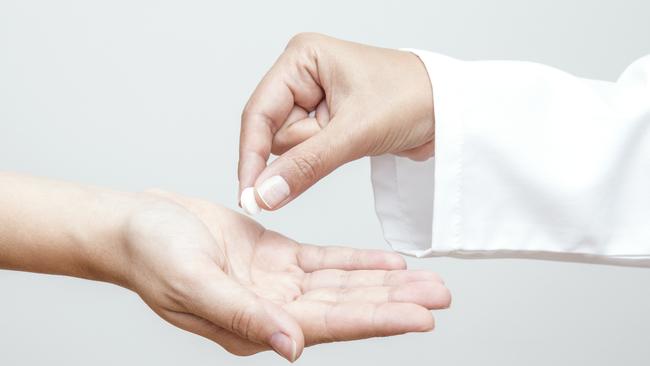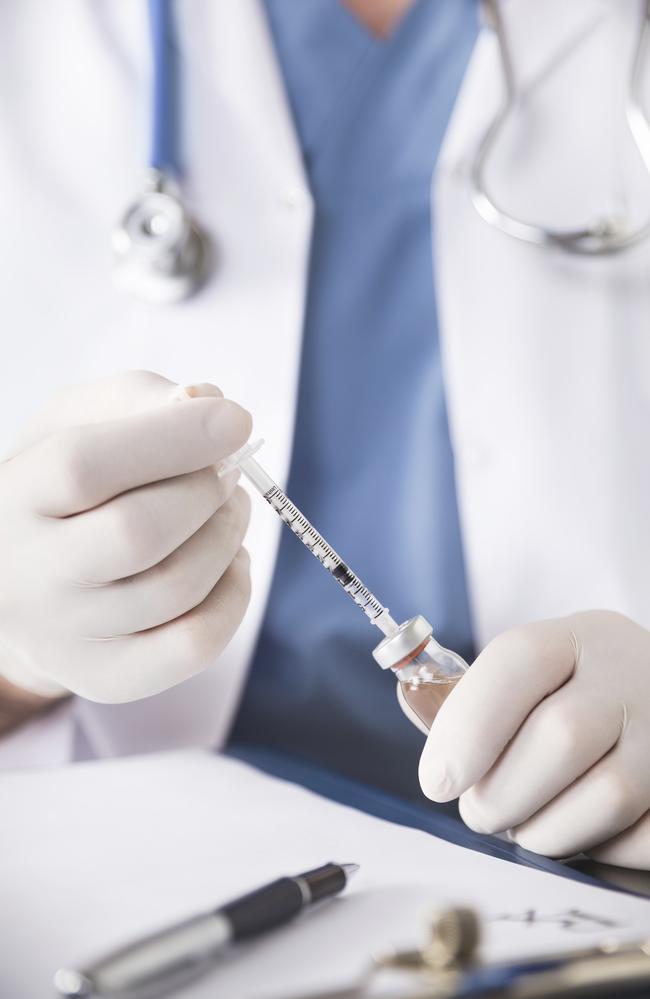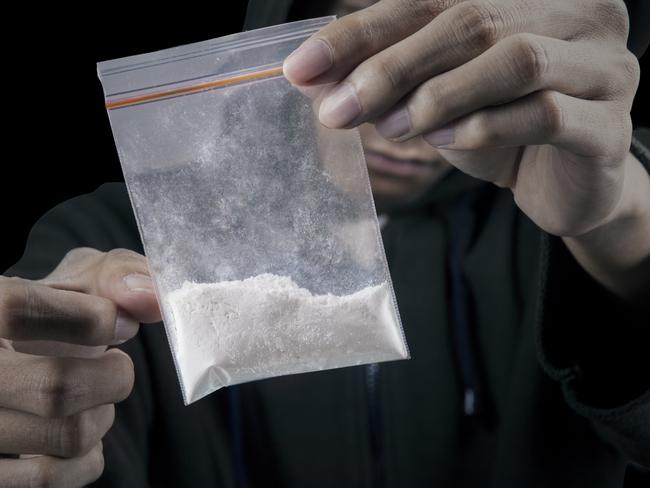Study reveals junior doctors are self-medicate to survive pressures
EXCLUSIVE: Cashed up, anxious, suicidal and pill popping — that’s the life of some of the state’s junior doctors.

NSW
Don't miss out on the headlines from NSW. Followed categories will be added to My News.
CASHED up, anxious, suicidal and pill popping — that’s the life of some of the state’s junior doctors.
Experts say taxing work hours, perfectionist personalities and daily exposure to death is putting junior doctors under great pressure and putting their rates of anxiety, prescription drug use and suicidal thoughts at higher levels than the general workforce.
It comes as The Saturday Telegraph reveals the shocking demise of a young female doctor who succumbed to drug addiction, abusing crystal meths and cocaine in a $400-a-day addiction while treating patients in Sydney’s busiest hospitals.

The revelations have prompted calls for junior doctors and medical students to learn healthy coping mechanisms. Beyond Blue’s head of research Nick Arvanitis said a survey of 14,000 doctors and medical students in Australia unearthed 3.4 per cent of doctors had a very high level of psychological stress compared to 2.2 per cent in general community.
“Younger doctors are more at risk of developing mental health conditions,” he said.
Female doctors’ risk of suicidal thinking is a massive 146 per cent higher than the general population, while for male doctors it is 26 per cent above average. Anxiety levels are high with 9 per cent of doctors suffering the disorder compared to 5.9 per cent in the general community.
“We know anecdotally there is a risk of doctors self-medicating, trying to take care of themselves because they don’t have a GP to seek support from,” Mr Arvanitis said.
He said a volatile work environment involving bullying, harassment, trauma and life-and-death decisions all drove up doctors’ risk of developing mental health problems.
ICE AND COCAINE USED AT WORK

IT started with dabbling in weed and party drugs at medical school and ended in destructive ice and cocaine binges while at work.
The dark descent of Dr CRF — as named in court documents — into drug and alcohol abuse went unchecked by the doctors and nurses she worked alongside in the state’s busiest hospitals. The female practitioner abused drugs for 15 years while studying medicine and surgery.
She would blow $200 to $400 a day on drugs.
Dr CRF, 36, did not tell her employers of her struggles, and while under the influence of crystal meth and cocaine attended work multiple times.
IN OTHER NEWS: 2016 NRL GRAND FINAL TIPS


